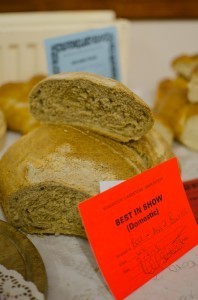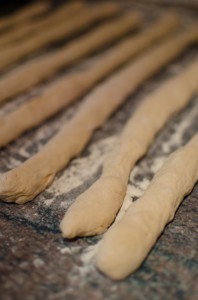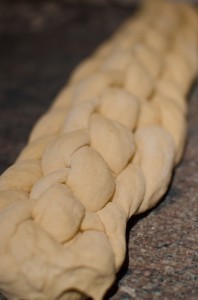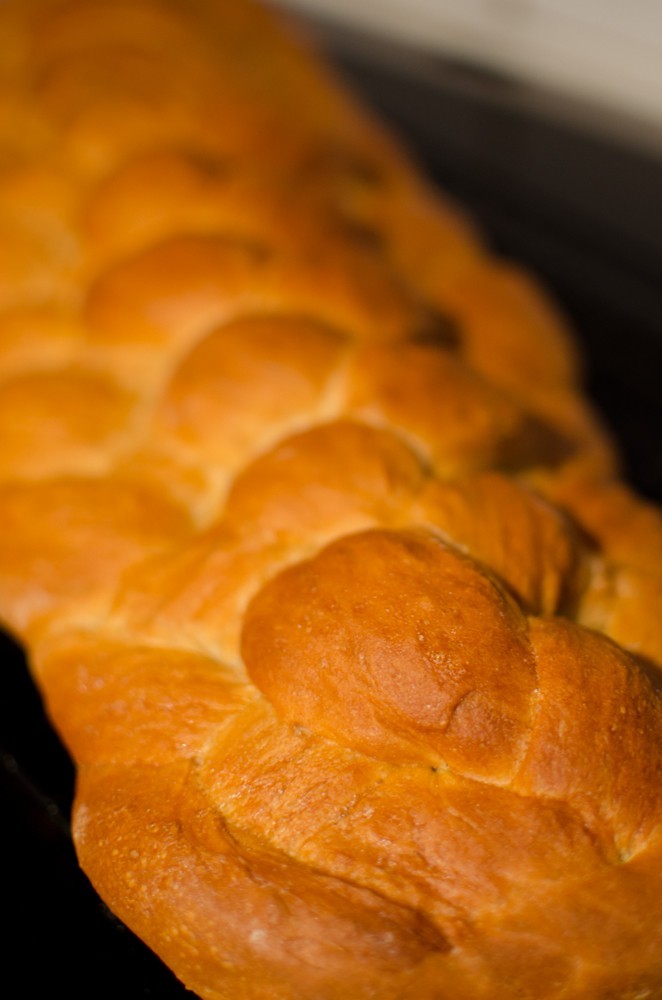This is the plaited loaf I made for the Wigginton show this year. My basic bread recipes come out fine but I thought for a show I should push the boat out and enter a more elaborate loaf in the ‘one loaf baked in a fancy shape’ category. In the end a bog standard cob won; it looked tasty but wasn’t ‘fancy’ by any means and I even think the bottom looked stodgey.
 I am very pleased with my first plaited loaf. Following the instructions and some clips on You Tube it was actually not that difficult. I tried to roll out the individual strands on an oiled work surface, how Paul Hollywood recommends, but the strands were slipping and sliding everywhere and not actually getting any thinner! It didn’t help that my work top really was not deep enough to do this properly so I had to work at an angle! My house is not the warmest, even on a late summers day, so I sit the bowl of dough on a heat pad that is meant for reptile aquariums. This provides the dough with a touch of background warmth which means I can get the rising and proving done without waiting all day and cooking them at midnight (and I have done that before).
I am very pleased with my first plaited loaf. Following the instructions and some clips on You Tube it was actually not that difficult. I tried to roll out the individual strands on an oiled work surface, how Paul Hollywood recommends, but the strands were slipping and sliding everywhere and not actually getting any thinner! It didn’t help that my work top really was not deep enough to do this properly so I had to work at an angle! My house is not the warmest, even on a late summers day, so I sit the bowl of dough on a heat pad that is meant for reptile aquariums. This provides the dough with a touch of background warmth which means I can get the rising and proving done without waiting all day and cooking them at midnight (and I have done that before).

 Squidge the ends together to seal and tuck top and bottom squidges under the loaf so it looks neat. Place the plaited loaf on a floured baking tray, place in a large plastic bag and leave somewhere warm to prove for an hour or so until the doubled in size and the dough springs back quickly if prodded.
Heat the oven to 230°C and put a roasting tray in the bottom of the oven. Brush the loaf with a beaten egg mixed with a pinch of salt but take care not to flood it otherwise the egg wash will glue together the strands so they can’t do the final rise in the oven. Put the loaf in the oven and immediately pour a half litre of water in the roasting tray. Bake for 20-30 minutes until cooked through (sounds hollow when tapped on bottom then another 5 minutes for luck).
Happy breading!
Squidge the ends together to seal and tuck top and bottom squidges under the loaf so it looks neat. Place the plaited loaf on a floured baking tray, place in a large plastic bag and leave somewhere warm to prove for an hour or so until the doubled in size and the dough springs back quickly if prodded.
Heat the oven to 230°C and put a roasting tray in the bottom of the oven. Brush the loaf with a beaten egg mixed with a pinch of salt but take care not to flood it otherwise the egg wash will glue together the strands so they can’t do the final rise in the oven. Put the loaf in the oven and immediately pour a half litre of water in the roasting tray. Bake for 20-30 minutes until cooked through (sounds hollow when tapped on bottom then another 5 minutes for luck).
Happy breading!

